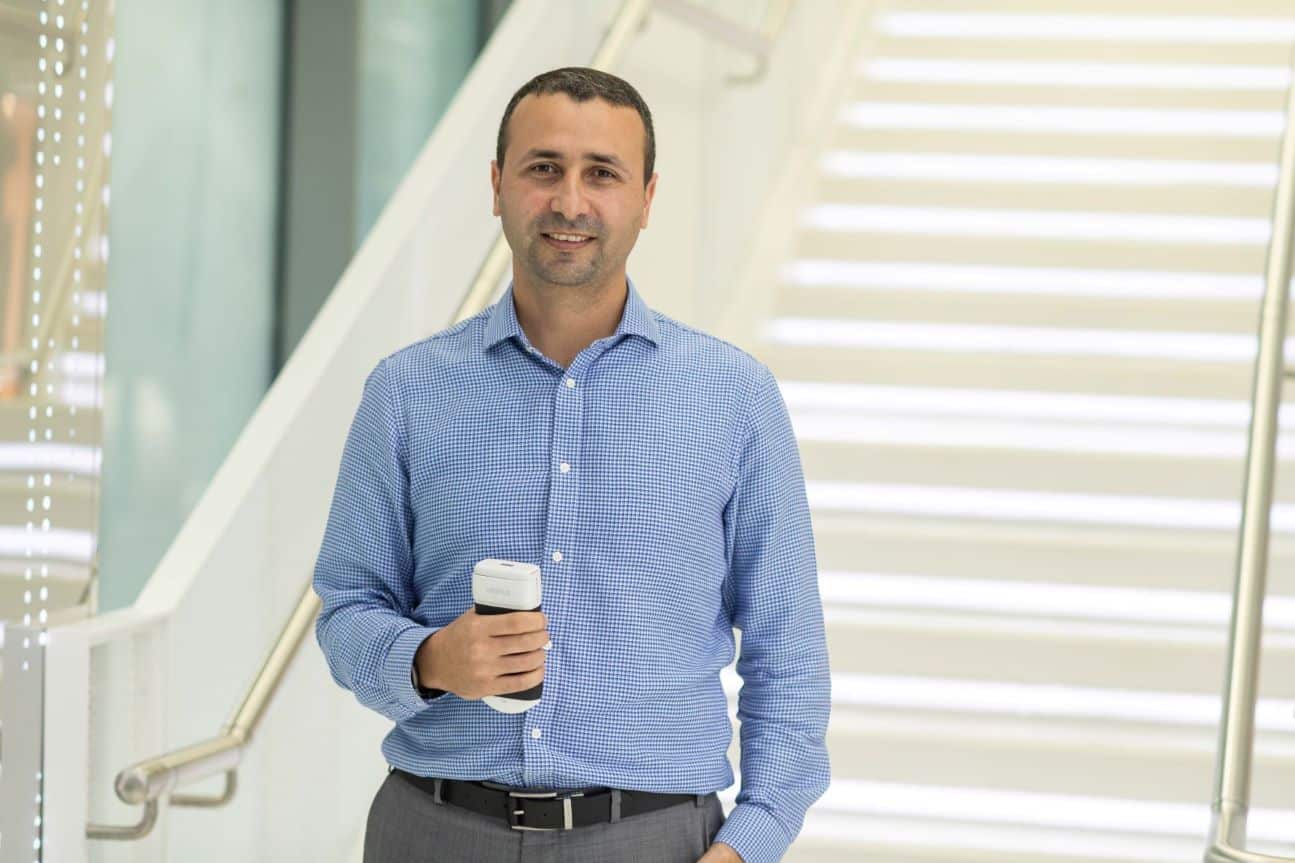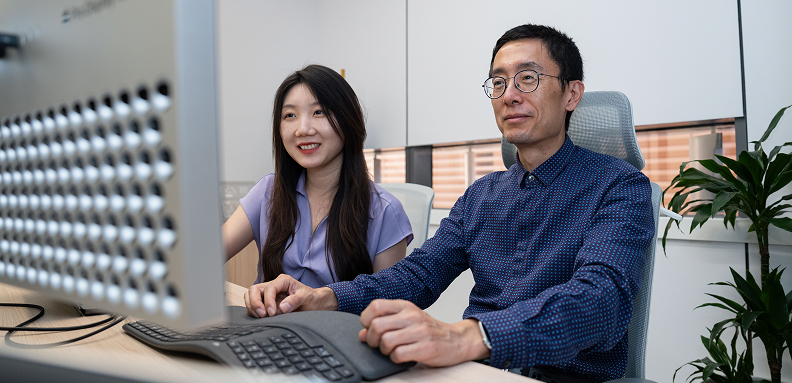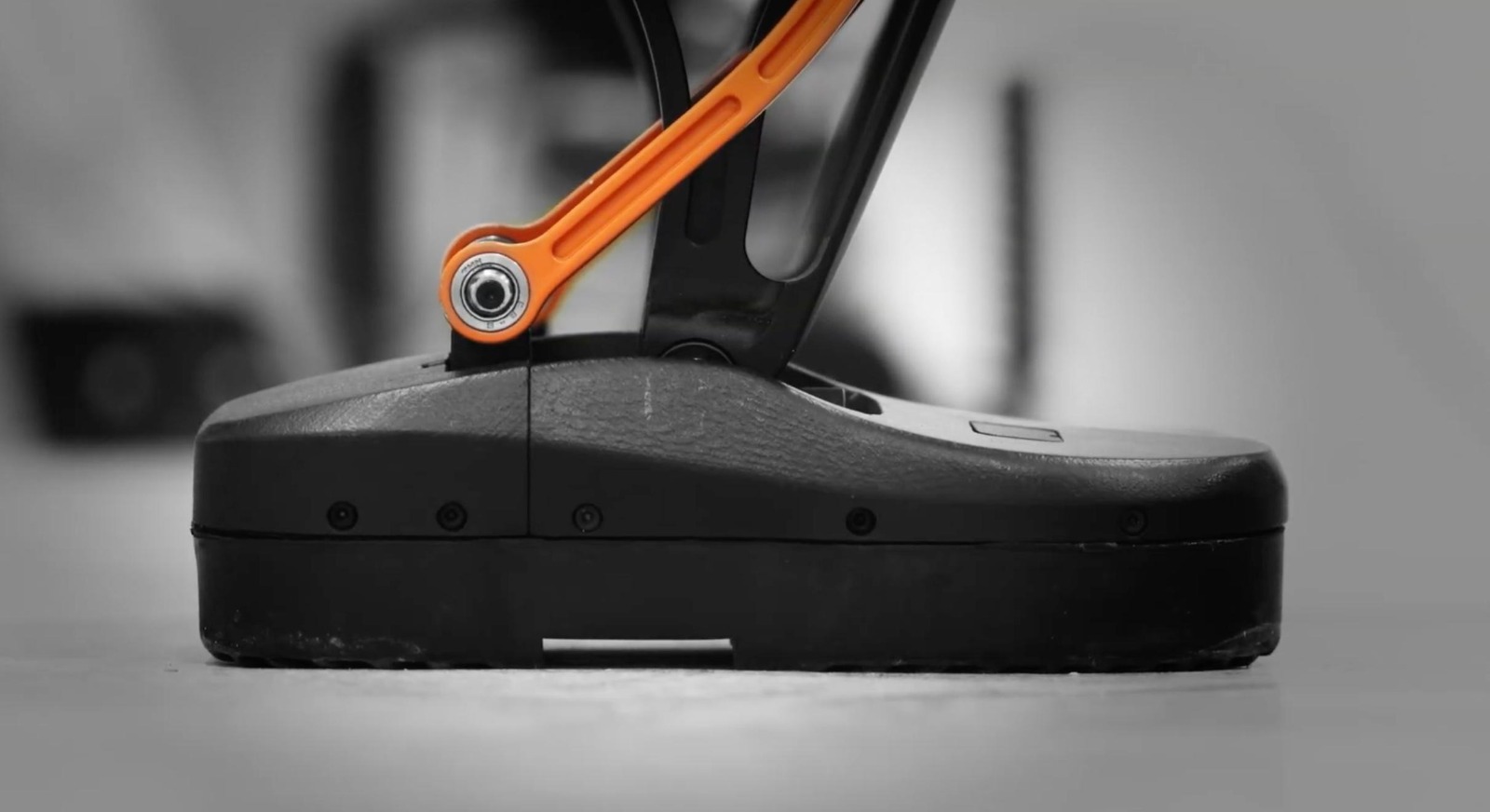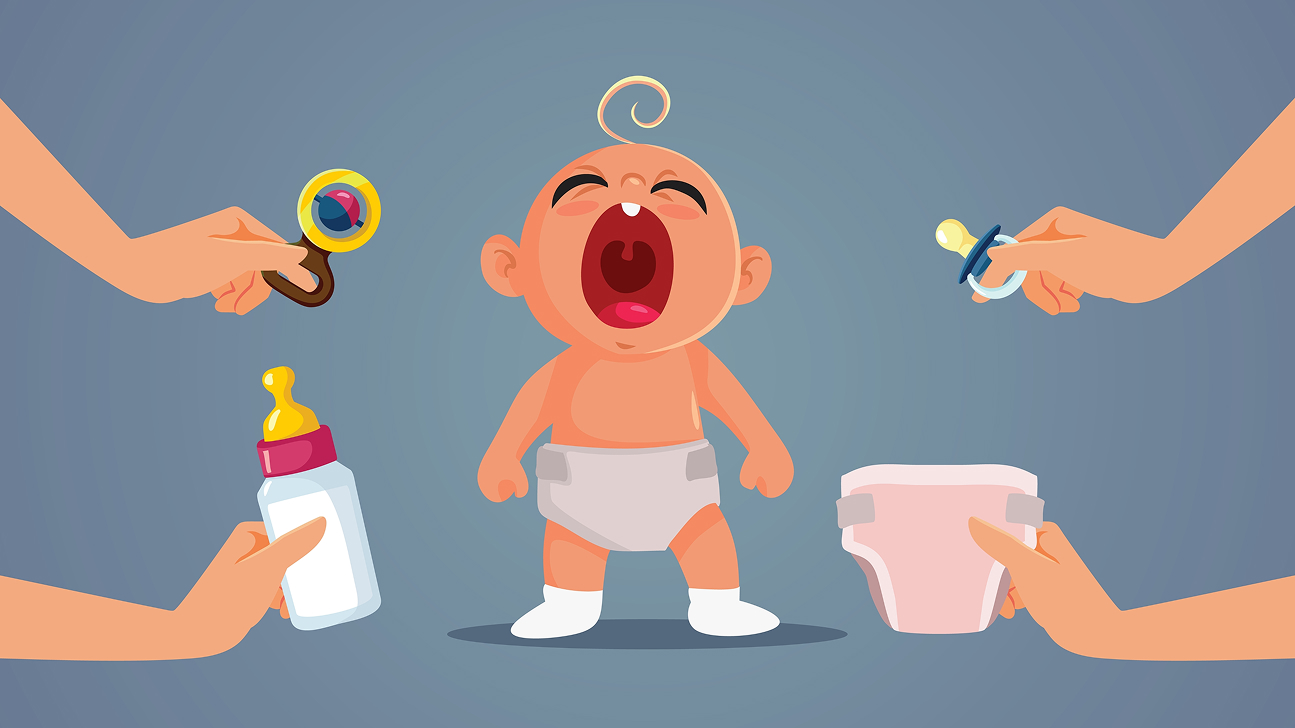PoCUS and accessible AI healthcare solutions
Friday, January 21, 2022

Artificial intelligence can transform the tiniest of objects—such as point-of-care ultrasound (PoCUS)—into lifesaving equipment, which can be used in the world’s most remote areas. At MBZUAI, researchers are working on several projects that will one day provide real-world benefits to millions of people. World-leading faculty such as MBZUAI Assistant Professor in Computer Vision, Dr. Mohammad Yaqub, is on the brink of another advanced diagnostic tool.
The tool—PoCUS—is not new, but the AI algorithms powering it and transferring data to a mobile device are.
Yaqub was part of a team that delivered a patent for the first AI-based fetal anomaly system, now used in a General Electric/GE Healthcare ultrasound device to assist doctors in the diagnoses of conditions at the 20-week gestational scan. Yaqub, who completed his Ph.D. in biomedical engineering at Oxford University, is now working on expanding these diagnostic algorithms for use in portable, handheld devices.
Accessible, affordable AI healthcare solutions
GE Healthcare’s Voluson SWIFT ultrasound machines are large and expensive, and only available to those who can afford them. Yaqub saw this as a problem and immediately started work on the development of algorithms that make smaller, more affordable, more accessible devices possible for use anywhere—the scene of an accident, for example, or in a refugee camp.
 “These handheld devices cost around $5000 USD compared to $70,000 for hospital-grade machines,” Yaqub said. “You’ll be able to connect it to any mobile device to see the results and the images. And at the press of a button, you’ll be able to place it on your neck and see the carotid artery or see the position of a baby,” he continued.
“These handheld devices cost around $5000 USD compared to $70,000 for hospital-grade machines,” Yaqub said. “You’ll be able to connect it to any mobile device to see the results and the images. And at the press of a button, you’ll be able to place it on your neck and see the carotid artery or see the position of a baby,” he continued.
“So many children die during labor and delivery unfortunately, and these are not in the main hospitals but villages. These devices can be used to scan, but the other part is that you also need the intelligence to read the images because you can’t take the doctors and put them in these remote situations.”
Saving lives, reducing healthcare pressures
“If you’re in the UK, you have to see your GP initially before you can be sent for a scan with a specialist,” Yaqub explains. “A doctor may think a person can go about their normal routine, which is maybe two to three months, before an appointment with a consultant, and it could become life threatening in some cases, and you want to avoid that.”
“By putting this technology into the GP or head nurse’s hands, they can just press a button, and be triggered by an image or the AI, to say this person needs to be seen faster as they are at higher risk for stroke in near future, for example,” Yaqub continued.
PoCUS was initially designed to give faster diagnosis of time-sensitive critical conditions, and with AI it might be available for use by more people, and in more situations, to save more lives.
Some experienced doctors are using ultrasound in their daily practice, but it gives very basic information to the user who then needs to interpret it. The aim is to get to a point where these PoCUS devices can be used by more people such as nurses, paramedics, midwives, and even the village healer, with accurate results regarding organs, internal bleeding, fetuses, etc.
“The biggest problem, in many cases, are the injuries inside your body—the ones you can’t see. If you can’t tell that there’s bleeding around the liver, you can’t intervene quickly enough to save the patient. These types of challenges have major consequences,” he said.
Yaqub shared his research on this in a demonstration at this week’s World Future Energy Summit 2022 (WFES), hosted by Masdar, which ran from January 17 to 19.
Wouldn’t it be wonderful if you could leverage the latest technologies to bring high-quality healthcare to all? UAE Hackathon winners RenAIssance use AI technology to democratize the treatment of kidney disease.#UAEVision2021 #UAEgotInnovation #EricssonMEA #healthcare #AI pic.twitter.com/SaUQVKp6Gg
— Ericsson MEA (@EricssonMEA) November 7, 2021
- healthcare ,
- yaqub ,
- computer vision ,
- image analysis ,
Related
Not just another deck: how MBZUAI’s okkslides is redefining executive communication
The MBZUAI startup is turning messy research and organizational context into decision-ready narratives with a human-in-the-loop AI.....
Read MoreMBZUAI and Minerva Humanoids announce strategic research partnership to advance humanoid robotics for applications in the energy sector
The partnership will facilitate the development of next-generation humanoid robotics tailored for safety-critical industrial operations.
Read MoreWhen AI learns to listen: how researchers are decoding baby cries to help new parents
An AI-powered app trained on more than 1,000 baby cries aims to reduce stress for new parents.....
- incubation and entrepreneurship center ,
- entrepreneurship ,
- startup ,
- IEC ,
- human-centered AI ,
- AI for good ,


